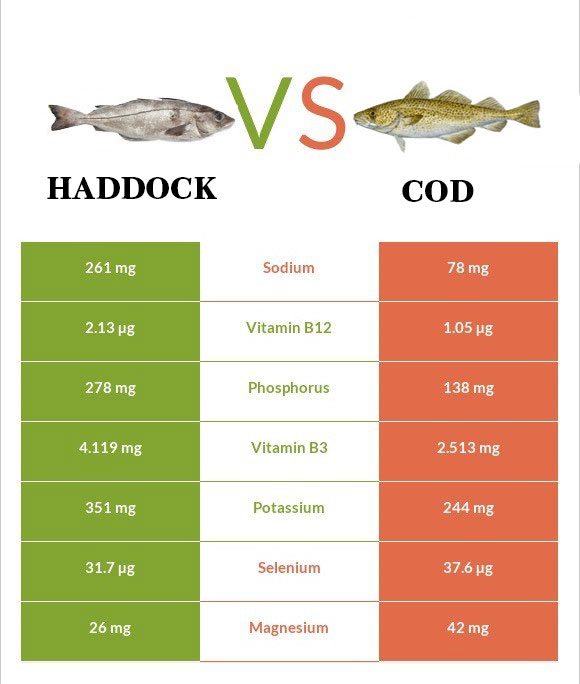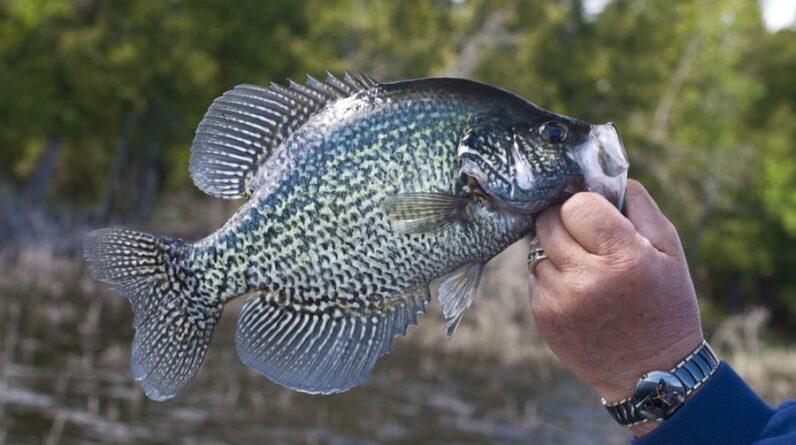When it comes to seafood, the choices seem endless. Among the plethora of options, haddock and cod often find themselves on the plates of seafood enthusiasts. Both are white-fleshed, mild-flavored fish that belong to the Gadidae family, but the differences between the two go beyond their similarities. In this blog, we’ll dive deep into the haddock vs cod debate, exploring their taste, nutritional value, and culinary versatility.
Haddock: A Delicate Delight
Taste and Texture
Haddock, scientifically known as Melanogrammus aeglefinus, is renowned for its delicate flavor and tender texture. Its flesh is flaky and slightly sweet, making it a favorite among those who prefer milder fish. The lightness of haddock makes it an excellent choice for various culinary preparations.
Nutritional Profile
Haddock is not only delicious but also packs a nutritional punch. It is a good source of high-quality protein, essential for muscle development and repair. Additionally, haddock provides essential nutrients such as vitamins B6 and B12, phosphorus, and selenium. These contribute to overall health, supporting functions like metabolism and immune system maintenance.
Culinary Uses
Due to its mild taste, haddock is versatile in the kitchen. It can be baked, grilled, fried, or poached, allowing chefs to experiment with a range of recipes. Popular dishes featuring haddock include fish and chips, baked haddock fillets with herbs, and creamy haddock chowder.

Cod: The Classic Choice
Taste and Texture
Cod, scientifically named Gadus morhua, is another staple in the seafood world. Known for its mild flavor and large, firm flakes, cod has been a culinary favorite for centuries. Its versatility in the kitchen has contributed to its widespread popularity.
Nutritional Profile
Similar to haddock, cod is a nutritious choice. It is rich in protein, providing the essential amino acids required for various bodily functions. Cod is also a good source of vitamins such as B12 and B6, niacin, and phosphorus. Additionally, it contains omega-3 fatty acids, known for their heart-healthy benefits.
Culinary Uses
Cod’s firm texture makes it suitable for various cooking methods. It can be baked, broiled, fried, or even used in stews and soups. Classic dishes like fish tacos, fish and chips, and cod au gratin showcase the versatility of this beloved fish.
Haddock vs Cod: The Showdown
Flavor Profile
While both haddock and cod boast mild flavors, haddock is often considered slightly sweeter. The choice between the two ultimately depends on personal preference, with some favoring the delicate taste of haddock and others the classic flavor of cod.
Texture
Haddock and cod differ in texture, with haddock having a more delicate, flaky texture compared to the firmer flakes of cod. This aspect influences the choice of preparation methods in the kitchen.
Sustainability
In recent years, sustainability has become a crucial factor in seafood choices. Both haddock and cod populations have faced challenges due to overfishing, but efforts are being made to ensure their sustainable management. When purchasing either fish, it’s essential to look for certifications such as MSC (Marine Stewardship Council) to support responsible fishing practices.
FAQs about Haddock vs Cod
Are Haddock And Cod Interchangeable In Recipes?
Haddock and cod can be interchangeable in certain recipes, but the choice depends on personal preferences. Haddock’s mild taste suits lighter dishes, while cod’s robust flavor adds depth to heartier meals.
Which Fish Is Better For A Low-Calorie Diet?
Both haddock and cod are excellent choices for a low-calorie diet. However, haddock’s slightly lower calorie content may make it a preferred option for those strictly monitoring their caloric intake.
Can I Use Haddock And Cod In Sushi?
While cod is a more traditional choice for sushi, haddock’s mild flavor can also complement sushi preparations. Ensure the fish is fresh, properly handled, and meets sushi-grade standards.
What Is The Best Way To Thaw Frozen Haddock Or Cod?
For optimal results, thaw frozen haddock or cod in the refrigerator overnight. This gradual thawing preserves the fish’s texture and flavor. Avoid using quick-thaw methods to prevent moisture loss.
Are There Any Sustainability Concerns With Haddock Or Cod Consumption?
Both haddock and cod face sustainability challenges due to overfishing. To make eco-conscious choices, opt for seafood certified by sustainable fishing practices, such as those approved by organizations like the Marine Stewardship Council (MSC).
Can Haddock And Cod Be Grilled, Or Is It Better To Bake Them?
Both haddock and cod can be grilled or baked, offering delicious results. Grilling imparts a smoky flavor while baking preserves the fish’s moisture. Choose the method that aligns with your desired taste and texture.
Conclusion
In the haddock vs cod debate, there’s no clear winner. Both fish offer unique flavors, textures, and nutritional benefits. The choice ultimately boils down to personal taste and the culinary experience you’re seeking. Whether you opt for the delicate sweetness of haddock or the classic appeal of cod, you’re in for a delightful seafood experience.






